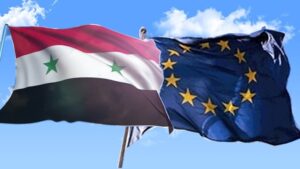Cyprus is an excellent example of the serious problems associated with water scarcity in the Eastern Mediterranean. According to Maria Panayiotou, Minister of Agriculture and Environmental Protection of the Republic of Cyprus, “climate change is dramatically changing weather conditions in the Mediterranean, rising temperatures affect precipitation patterns, and more frequent and severe droughts are becoming the new normal*.”
From September 1 to 3, the MED9 summit was held in Ayia Napa with the participation of nine ministers of agriculture of the Mediterranean countries. During the meeting, the Cypriot Minister acknowledged that the deterioration of the environmental situation in the Mediterranean basin, in addition to droughts, is facilitated by more active development of new territories for construction, steady air pollution, an increase in the rate of land use, as well as a reduction in biodiversity.
According to the European Drought Observatory (EDO), Europe is facing its worst drought in at least the last 500 years. Its features are temperatures above average, a series of heat waves and the lack of sufficient precipitation.
At the moment, the shortage of fresh water in Cyprus is one of the most acute problems that negatively affects agriculture, human well-being and the stability of economies. Due to the drought, the Ministry of Agriculture was forced to reduce by a third the volume of water for irrigation of farm fields, gardens and greenhouses in Cyprus.
— Reducing water volumes forces farmers to switch to more drought-resistant crops that require less water. This can lead to a reduction in food diversity and a change in eating habits,” explained Maria Panayiotou.
In the long term, water scarcity can contribute to desertification, salinization and soil erosion, which will eventually lead to a decrease in agricultural productivity.
— The rapid pace of urbanization, population growth and the booming tourism industry have further increased the demand for water, creating an additional burden on water resources, — said the head of the Ministry of Agriculture of Cyprus.
How to solve the problem of shortage of fresh water in the reservoirs of the island? According to the Minister, this can be done using non-traditional types of water resources, such as advanced water purification and reuse systems, desalination of seawater, as well as the introduction of innovative irrigation methods, water-saving technologies and the planting of more varieties of crops resistant to drought.
* New normality (new reality, new normal) — the rapid emergence of new phenomena that are sharply different from the previous ones (what used to be unusual has become ordinary, normal). The term appeared in the 30s of the XX century during the Great Depression in the United States and the adaptation of the economy and society to its consequences. It began to be widely used again after the crisis of 2008-2009, when it became clear that the world economy was facing new phenomena: a slowdown in economic growth, a slower-than-expected pace of the fourth industrial revolution, and a change in the nature of globalization. The term gained new popularity after the Covid-19 pandemic, which led to drastic changes in the economies of most countries. Nowadays, the new normality can be considered one of the main trends determining the development of the global economy.
Source: evropakipr.com
Our comment: So, the residents of Cyprus are invited to drink less, wash less, water and irrigate less, eat less. And consider it a “new normal.” Meanwhile, it would be possible to turn to Soviet and Russian technologies with results that have been confirmed for decades. “Atmospheric technologies” of precipitation intensification, we wrote about them here.




